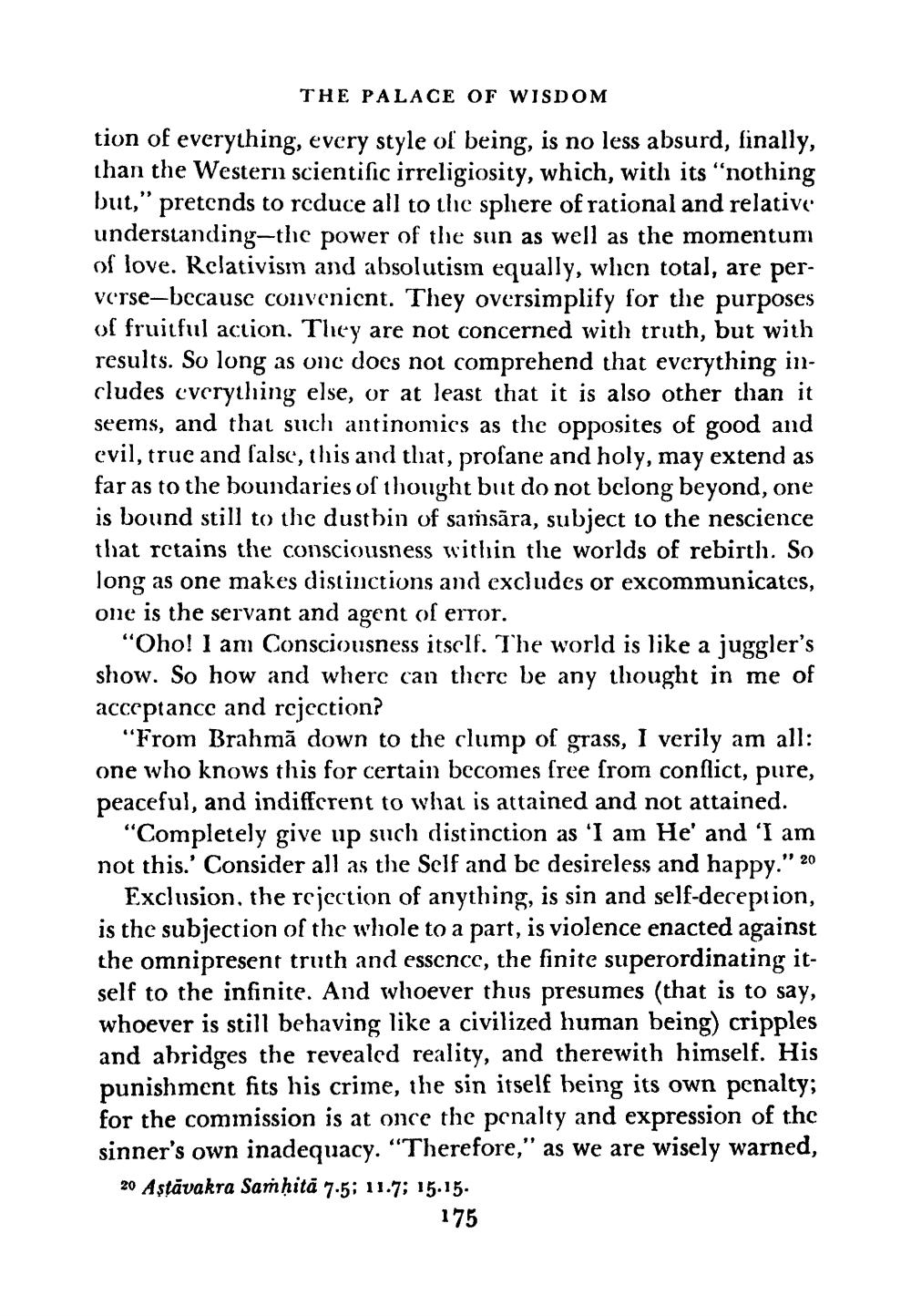________________
THE PALACE OF WISDOM
tion of everything, every style of being, is no less absurd, finally, than the Western scientific irreligiosity, which, with its "nothing but," pretends to reduce all to the sphere of rational and relative understanding-the power of the sun as well as the momentum of love. Relativism and absolutism equally, when total, are perverse-because convenient. They oversimplify for the purposes of fruitful action. They are not concerned with truth, but with results. So long as one does not comprehend that everything includes everything else, or at least that it is also other than it seems, and that such antinomics as the opposites of good and evil, true and false, this and that, profane and holy, may extend as far as to the boundaries of thought but do not belong beyond, one is bound still to the dustbin of saṁsāra, subject to the nescience that retains the consciousness within the worlds of rebirth. So long as one makes distinctions and excludes or excommunicates, one is the servant and agent of error.
"Oho! I am Consciousness itself. The world is like a juggler's show. So how and where can there be any thought in me of acceptance and rejection?
"From Brahmă down to the clump of grass, I verily am all: one who knows this for certain becomes free from conflict, pure, peaceful, and indifferent to what is attained and not attained.
"Completely give up such distinction as 'I am He' and 'I am not this.' Consider all as the Self and be desireless and happy." 20 Exclusion, the rejection of anything, is sin and self-deception, is the subjection of the whole to a part, is violence enacted against the omnipresent truth and essence, the finite superordinating itself to the infinite. And whoever thus presumes (that is to say, whoever is still behaving like a civilized human being) cripples and abridges the revealed reality, and therewith himself. His punishment fits his crime, the sin itself being its own penalty; for the commission is at once the penalty and expression of the sinner's own inadequacy. "Therefore," as we are wisely warned,
20 Aştavakra Samḥitā 7.5; 11.7; 15.15.
175




